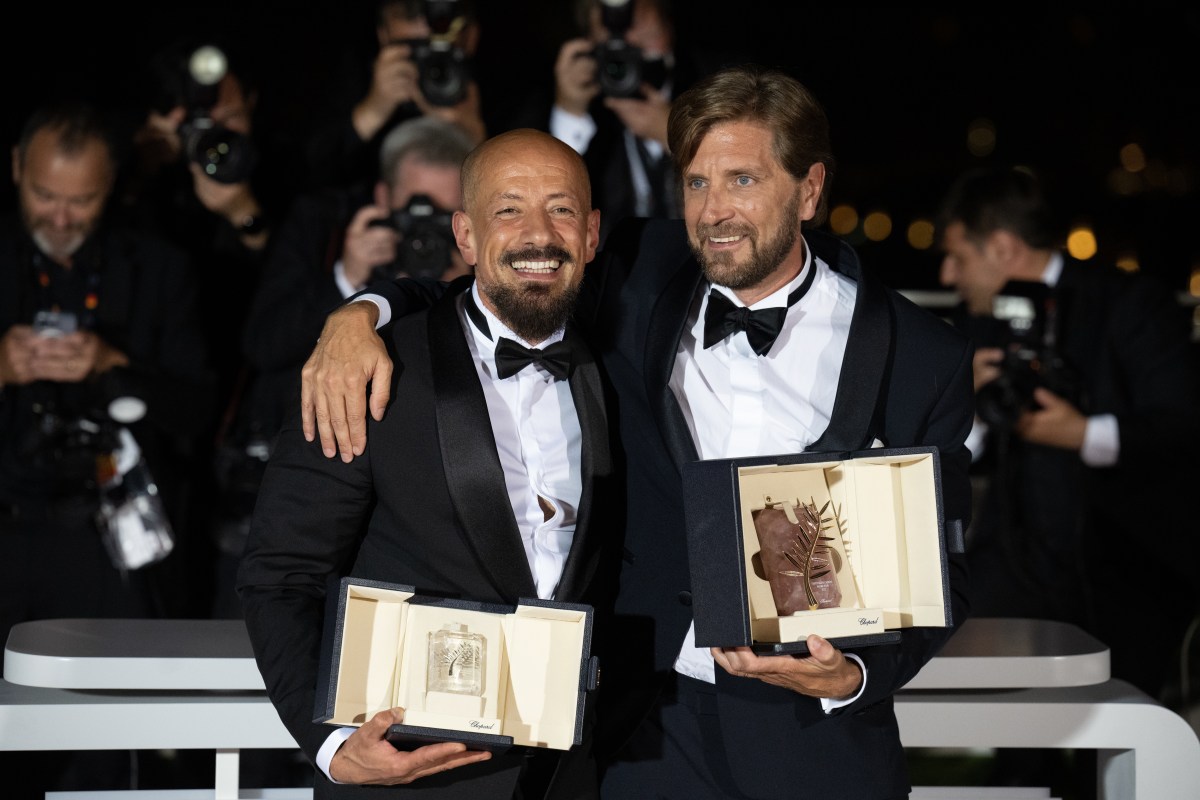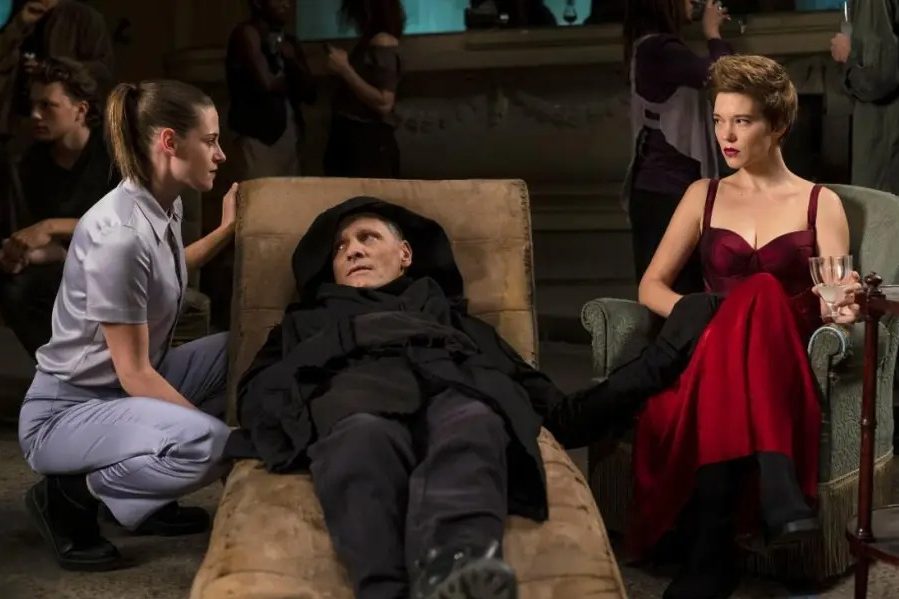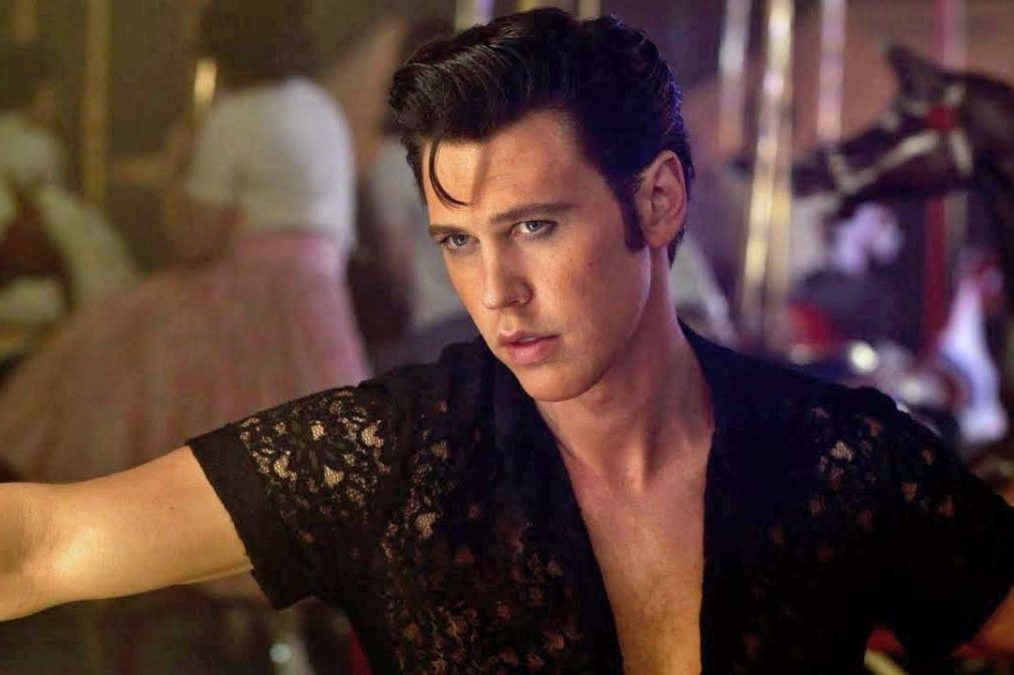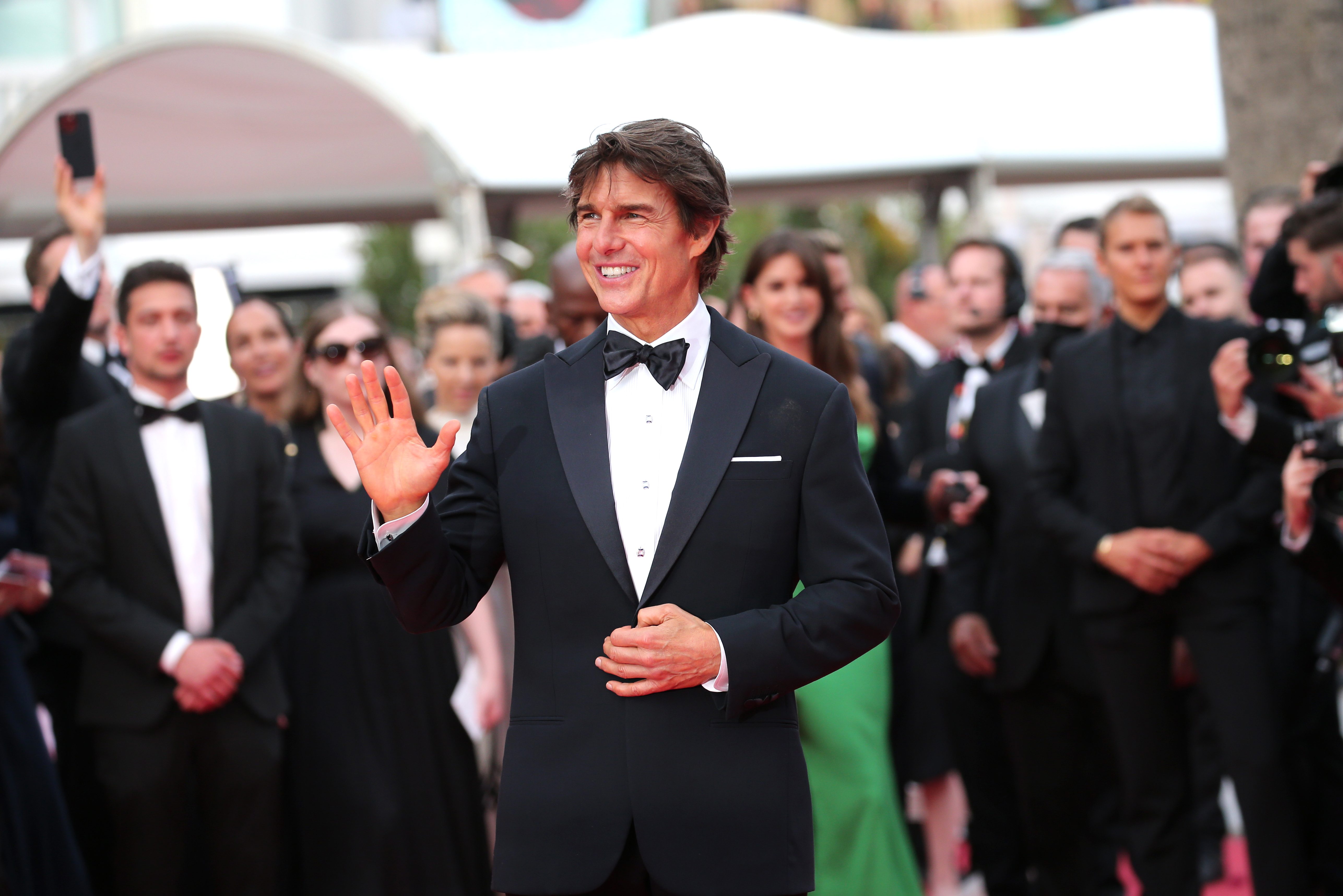This is the latest installment of the 2022 edition of the French Dispatches, our on-the-ground coverage of the Cannes Film Festival.
The Cannes awards got off to an inauspicious start on Saturday night when the first prize, Best Screenplay, went to the Swedish filmmaker Tarik Saleh for his Egypt-set The Boy from Heaven, one of a handful of Competition titles I skipped, and a film which a friend of mine, a professional film critic, described to me on multiple occasions as “A regular movie. A very normal movie.”
Another normal-looking, regular-looking movie that I skipped, and not even one of the normal-looking, regular-looking movies that people told me I’d regret missing because it’d win an award, shared the Jury Prize. The Eight Mountains, adapted from an Italian bestseller by the Belgian director Felix van Groeningen (The Broken Circle Breakdown) and his partner in art and life Charlotte Vandermeersch was described to me as a nice movie about friendship between two men in the Italian Alps over the course of childhood and adulthood, the kind of thing you could take your parents to, and nearly two-and-a-half hours long. I saw 17 of the 21 titles vying for the Palme d’Or, including a couple I wasn’t at all excited for, to keep up with the story of this festival and still missed two prizewinners, which is maybe a personalized way of articulating a general sense of disappointment with this year’s choices.
Vincent Lindon’s jury spread the love around, following the lead of Spike Lee’s jury last year in awarding two movies each the Grand Prix (basically, second prize) and Jury Prize (third). In a weaker year compared to 2021’s two-year backlog bumper crop, this felt less like excitement and more like politics. They ended up awarding 10 of the 21 competing films, even handing out an extra prize commemorating the festival’s 75th anniversary to Jean-Pierre and Luc Dardenne for Tori and Lokita, a drama about trafficked teenage girl and young boy from Benin scraping by in Belgium’s shadow economy. The brothers have won the Palme twice, in 1999 and 2005, and after a decade that has seen their relevance wane, Tori and Lokita is a vintage Dardennes film, shot in fleet and rigorous handheld, clearly plotted around financial transactions that become a window into society and ultimately spiritual in its depiction of poverty, suffering and human morality. It’s got a more miserable ending than what the Dardennes used to give us, because the world has gotten worse in the time they’ve been filming it, but the film still felt more familiar than exciting.
Best Director went, disappointingly, to Park Chan-wook for Decision to Leave — there were better choices, besides which it was the wrong prize to give the movie, when Tang Wei was a favorite for Best Actress. Instead, that award went to Zar Amir Ebrahimi for Holy Spider, the Iranian-Danish director Ali Abassi’s true-crime procedural about a real-life religious zealot who murdered 16 prostitutes in Mashhad Iran’s holiest city, in 2000 and 2001. (The film was shot in Jordan.) The dark conventional wisdom is that getting away with murder is easy if you kill women society doesn’t care about, and Holy Spider indicts the Iranian patriarchy through its depiction of indifferent-or-worse police, religious authorities and civilians, but it’s just flatly made, tawdry in its brutal depiction of violence against women and potentially self-congratulatory and hypocritical in its double-underlined depiction of Islamic-fundamentalist misogyny. Still, Ebrahimi, who plays a female journalist investing the case, gave a rousing acceptance speech that underscored the film’s extratextual resonance — her career was derailed in 2006 by a sex-tape scandal that rocked Iranian society and sent her into permanent exile in France.
Best Actor went to the Korean megastar Song Kang-ho, star of Parasite, who I had previously singled out for his role in Hirokazu Kore-eda’s Broker. They got this one right: it’s a great performance by a great performer in one of the festival’s marquee misfires. Broker treads familiar ground following Kore-eda’s Palme winner Shoplifters, and Song plays a role very similar to that of Lily Franky in the 2018 film: a man with a compromised past, gradually revealed, who lives a life of petty crime, in this case as a black-market broker of illegal abortions, and through his place at the margins and innate capacity for grace becomes the surrogate father to a family of social outcasts. The film lacks the thematic and structural precision of Shoplifters but Kore-eda is a masterful, organic architect of simple and beautiful emotional beats and Song has the soul to hit them.
The Eight Mountains shared the Jury Prize with one of the films of the festival, the 84-year-old Polish arthouse star of the ’60s, ’70s and ’80s Jerzy Skolimowski’s Eo. “Eo” is the sound a donkey makes — in French the film is called Hi-han — and Eo indeed concerns the life of one such humble beast, who travels from owner to owner, farm to farm, in a picaresque cross-section of Europe. Remaking Robert Bresson’s Au Hasard Balthazar, a Christian parable about the life of a donkey in rural France, Skolimowski has delivered one of the great, eccentric atheist films, a surreal, absurdist, sketch-comical vision of human cruelty and folly, which takes an old man’s pleasure in its own indulgence and caprice. The swirl of stylistic digression and clownish and cruel human behavior is anchored by the handsome and enduring Eo, a friend to all film critics, who spent the entire festival braying “Eee-ooo” at each other. Eo is a real one, with the heart of a warrior and the soul of a poet. Eo smokes weed and kills a guy. Receiving the award, Skolimowski began by thanking the donkeys who starred in his film. I only wish they had attended the ceremony.
The first of two Grand Prixs went to Claire Denis, a career achievement award for a film that very few people liked except me. (When I say the awards were disappointing, I’m reporting on general vibes, slightly more than my own taste.) The other one went to Lukas Dhont for Close, tipped as a hot favorite for the Palme d’Or before it screened. Dhont begins by establishing the friendship of two Belgian boys, Léo (Eden Dambrine) and Rémi (Gustav de Waele). They play together in a state of nature, whispering to each other at night in the bed they share, playing make-believe, and frolicking in the flower fields — you know, typical 12-year-old boy stuff. The specter of adult sexuality, and its confusion and moralism, looms over the film: when Léo and Rémi arrive in middle school, their bond is suspect; green shoots of queerness seem to sprout in one of them as internalized homophobia blossoms in the other, and the two boys drift apart. The film gets where it’s going faster than I thought it would, and it’s pretty devastating for it — scenes that feel like they should be the first beat in a film-long arc take on a cruel, absolute significance. But the rest of the film is so dull! Dramatically inert, tastefully muted in ways that do not disguise the obviousness of the metaphors. This win makes Dhont one of European cinema’s golden boys, but he’s yet to convince me he has much to say beyond an achingly tender view of queer adolescence, a handled-with-care style that verges on the precious.
And so we come to the Palme d’Or, Ruben Ostlund’s Triangle of Sadness, a surprise pick in that when it screened on the first weekend as one of the competition’s most anticipated titles, it seemed to set the narrative that 2022 was a disappointing Cannes. I liked it, as I said — it’s an expansive, Rabelsian farce, which quotes Leftist theory in a blunt, zeitgeisty way to go along with a complete, allegorical vision of human society as a Hobbesian state of nature, down to the gross-out comedy. Being set largely on a superyacht — a milieu with which the Cannes jury has some familiarity —probably worked in its favor: laughing at its hip, hateful comedy is a good way for members of the cultural elite to show that they’re in on the joke. The film makes it easy for them to do that, with knowledgeable digs at fashion-industry narcissism and the influencer economy, and a very rich-looking production design. It’ll play well in the U.S. Ostlund, though ambitious in his choice of subject matter and formal bravura — with appealing smugness, he has suggested the film might be released in America in a longer cut than the 150-minute version that screened here — is not a good enough filmmaker to have won the Palme twice before his 50th birthday. Then again, that judgement can also be applied to almost all the other previous winners of multiple Palmes.
The biggest snub, though not a surprising one, was Kelly Reichardt’s Showing Up, the second-to-last Competition film to screen, on Friday afternoon. In it, Reichardt regular Michelle Williams plays Lizzy, a ceramicist and administrator at an art school in the Pacific Northwest; the film was shot on the recently shuttered campus of the defunct Oregon College of Art and Craft in Portland and contains many interstitial scenes of students weaving, doing interpretive dance outdoors, throwing pots and drawing figure studies. It’s a placid world but not a utopia. The film spans eight days, Monday to Monday, leading up to Lizzy’s gallery opening — a show at a place that is seemingly one of those storefronts spotlighting “local art,” rather than part of the interconnected web of international fairs, museum commissions, grants, magazine recognition and artist-in-residence appointments. That’s the purview of Lizzy’s roommate and friend Jo Hong Chau, who works at a larger scale and receives commensurately more recognition. When Lizzy stops by her show, Williams silently conveys a mix of emotions: an artist’s knowledgeable appreciation for a colleague’s practice, pride in an acquaintance’s achievement, personal and professional jealousy and resignation.
Jo is also Lizzy’s landlord, who hasn’t gotten the hot water fixed in Lizzy’s apartment and blithely assumes that Lizzy, as a fellow artist, will understand that she’s simply too busy preparing for her own opening to provide the basic necessities. These sorts of frictions rub on Lizzy throughout the episodic film, which is hyperspecific and funny about the forms passive-aggression takes in a hippie art-school milieu — unsurprisingly as Reichardt teaches at Bard — and is more generally a sidelong view of the pressures, familial and financial and psychological, which interfere with the life of the artist (particularly the female artist) and represent both objective and subjective obstacles to pursuing an enriching and fulfilling creative life, publicly or privately. Yet at the same time Showing Up is a gentle, beautiful, affirming film, so lived-in its depiction of Williams’s home life and creative routine, her white studio Crocs and ginger cat, and it makes you feel her satisfactions and disappointments, her complete emotional life that’s poured into rough ceramic sculptures that are as handmade and delicate as the film.
Showing Up was perhaps the smartest movie in Competition but probably seemed too minor, its pleasures too unassuming and its insights too subtle, to be a fitting Cannes award-winner, though critics attuned to Reichardt’s wavelength all agree that it’s one of her strongest works. (She joins James Gray and David Cronenberg among the North American auteurs shut out of this year’s awards for making exactly the movie they wanted to make, alongside the Spanish maverick Albert Serra, whose obscure and arch but overwhelmingly gorgeous and engrossing slow-cinema South Seas political thriller Pacifiction was the intelligentsia community’s overwhelming favorite in competition.) But watching it from the balcony of the Lumiere with my friends, knowing it was the end of my Cannes, I felt my festival fatigue evaporating, replaced by an overwhelming sense of fullness and gratitude.
This article appeared in an InsideHook newsletter. Sign up for free to get more on travel, wellness, style, drinking, and culture.
























